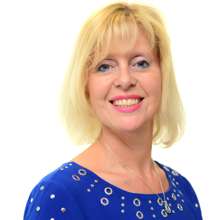Philippa Dempster joined Freeths more than 30 years ago, since when it has grown from a well-respected Nottingham practice to a top-50 national firm with 12 offices and more on the way. She tells The Brief about a journey that has seen her become national senior partner and London managing partner, and the firm’s vision for the future.
Philippa Dempster is the national senior partner and London managing partner at Freeths, the firm she joined more than 30 years ago as a junior solicitor. Now a top 50 firm which employs 1,000 people across 12 offices around England, Freeths has enjoyed ten per cent year-on-year growth for the past decade (with the exception of the Covid year) and last year reported turnover of £112 million.
Freeths was established in Nottingham in the 19th Century, and when Dempster joined the firm its offices were confined to that city. It, however, always had an eye on growth.
She says, “We always had ambitious plans to be the best in Nottingham, to start off with, and then having grown, having merged, having become regarded as one of the best firms in Nottingham, we realised we had saturated the marketplace and needed to branch out and do more. So that was when we started to develop offices elsewhere in the Midlands, and then went up to Manchester.”
The firm has opened new offices in Manchester and Birmingham, and carried out mergers with firms in Milton Keynes, Stoke-on-Trent and Oxford, as well as moving into the South West, with an office in Bristol.
The London office was established by Dempster and corporate partner Tom Rowley in April 2013. Based in Mayfair, it is now the firm’s second-largest office, employing more than 90 people and turning over £15.9 million – a figure that would make it a Top 200 firm in its own right.
Freeths as a whole generates around 20 per cent of its turnover from private client work, but the lion’s share of its income comes from work for corporates, institutions and the public sector. This includes Dempster’s specialist area – commercial litigation.
Commercial disputes
Dempster’s day-to-day practice involves a broad range of commercial contracts and disputes for businesses in all kinds of different sectors. Examples she points to include mobile phone recyclers pursuing suppliers of substandard stock, retailers with supply chain issues, property developers suing surveyors for negligence, and companies that have acquired misleadingly overvalued businesses seeking recompense from the vendors of those businesses.
Another significant matter on which Freeths acted for the complainants, and in which Dempster’s team was involved, was the action against the Post Office following the scandal in which it had wrongly accused a large number postmasters of defrauding it, leading to many of them losing their livelihoods and even suffering criminal sanctions.
This case, as well as going some way to righting a notorious wrong, saw Freeths pick up “Law Firm of the Year” awards from both The Lawyer and Legal Week.
Crown Court
Dempster grew up in a working-class family in Grantham, the Lincolnshire town probably best known as the birthplace of Margaret Thatcher.
Like many who grew up in the 1970s and 1980s, Dempster’s interest in the law was first piqued by TV courtroom drama. While some of her contemporaries drew inspiration from Rumpole of the Bailey, her gateway to the law was provided by that other great staple of the genre, ITV’s Crown Court.
When I was at primary school I used to go to my Grandma’s at lunchtime, and we would watch Crown Court, where you would see the prosecution advance the case, and you would hear the defence. I absolutely loved it, I couldn’t get enough of it – I loved the intellectual challenge, trying to work out who was right and who was wrong.
This enthusiasm remained with her into secondary school, where “I was fortunate to have a friend whose father was a barrister, and he took me to a number of court hearings with him in the summer holidays.” Around the time she was in the sixth form she was also able to carry out work experience with a local firm of solicitors, before going on to study at Nottingham Law School.
She then trained at the City of London firm Hogan Lovells. “I loved that,” she says.
Commercial interest
Despite her Crown Court having provided her early inspiration, she decided that commercial work compared favourably to the criminal matters she have worked on during her work experience placements in Grantham. “Quite a lot of it is quite sad, dealing with people from difficult backgrounds who were often short of money or on drugs .Not being able to make the difference that I would have liked, and finding that it wasn’t as much of an intellectual challenge as commercial was, I decide not to follow the criminal side.”
After qualifying, and uncertain whether she would be offed a job in commercial litigation at Hogan Lovells, she began reaching out to firms, including Freeths, in Nottingham, “which was always my home city, having been brought up in Grantham”.
As it turned out, she did land the role she wanted at Hogan Lovells. However, Freeths later got in touch again to ask her to join them and, mindful of family and relationship connections, as well as the opportunities promised by the Nottingham firm, in 1992 she took them up on their offer.
Back to London
Over the years that followed she built her practice, and also her profile within the firm, at one point leading the commercial team. In 1996 she was made partner.
Then, around a decade ago, the firm opened its London office and asked her to lead it. “We have had a great time building the team here,” she says.
It’s been really good fun recruiting people, working with them, developing clients, bringing junior lawyers into the teams and watching them grow and become partners themselves. It’s been absolutely fantastic.
In addition to her role as London office managing partner, Dempster has also, since 2020, been senior partner for the firm as a whole. Her election to this position followed a review of the firm’s management, which saw Karl Jansen become national managing partner and Julian Middleton take on the role of chairman.
Custodian of the firm
While Jansen is responsible for day-to-day management of the firm, Dempster’s role as senior partner focuses on promoting diversity, safeguarding the firm’s culture, and building its brand presence.
“A senior partner is a custodian of the firm, making sure we don’t dilute all the great things we have been doing as we grow and evolve the business,” she explains.
In terms of diversity, she has been responsible for drawing up the firm’s strategy and developing the key performance indicators and milestones necessary to measure its success. This strategy, she says, includes not only the firm’s intake and pathways for progression, but also the background of work experience students and interns.
Three years into the role of senior partner, Dempster is proud to have been recognised for making a difference by winning the Law Firm Leader of the Year in Law.com’s Women Influence & Power in Law award’s this year.
Progression and retention
Dempster is optimistic about not only Freeths’, but the sector as a whole’s, trajectory in terms of improving diversity, and opportunities for progression for people who aren’t all white, middle-class British men.
“When I first started in the law I had a friend who was demoted from partner to senior associate because she wanted to work four days a week after starting a family,” she says. “Another was told she couldn’t actually work as a lawyer, doing legal work, and could only do compliance, which resulted in her leaving the law and pursuing a very successful academic career.
Now people can work part-time, and we have shared parental leave which is fantastic, and a massive change. There are more women in senior positions now, although it’s still not enough, but it takes time for that to flow through.
No one-size-fits-all
She also believes it is important not to put pressure on everyone to become partners or sit on the boards of their firms as they progress: “Some people want to do something different with their lives, they want to have balance, which is absolutely fine, too.”
To cater for lawyers who want to progress but not necessarily to take on the pressure that comes with partnership, Freeths introduced a “director” role almost a decade ago.
Dempster explains, “A lot of people don’t just want to be a managing associate as they get older. They want to have a title, they want to feel they are more part of the business, but they may not want to take on a partnership role where there is a bit more risk and responsibility for growing a business.
“So, from managing associate you can become director, and from director you can become partner but, equally, some people get to director and decide that’s where they want to stay.
“We have a number of people in the business who are like that. Some are part-time and some are full-time, but they just want to get on and do a great job, and being a director means they get paid very well, they have the gravitas they need to have with clients, and it works really well for them. Equally they don’t have the pressure of going out to win work”
New workstreams, new offices
As well as ensuring diversity of opportunity within its team, Freeths is also focused on the old-fashioned business of growth. Dempster says, “We are establishing and expanding our presence in areas including energy, particularly renewable energy, transport and ESG, which is a new workstream.
“These are forward-thinking areas that we know our clients really will need and want, and are the areas we can focus on and will help us to grow. So, we are very much looking at how we are going to continue with the momentum we have had, particularly, for the past decade.”
She says, “I want to get to turnover of £150-£200 million in a fairly short space of time, by continuing to grow the offices.”
Although she rules out international expansion, saying Freeths is happy to continue partnering with overseas firms to service clients in other jurisdictions, she says, “We will definitely see some expansion in terms of new locations in the UK. And a case in point is that we will be opening in Glasgow over the summer.’’
“The way I see the firm is being bigger and even better than where we are today, recognised as being a national powerhouse for excellent lawyers, and a place where people think, ‘This is the sort of firm I want to be part of because it’s dynamic, it’s growing, it’s passionate, it’s energetic, and I know I can build my career there because I’m going to come through and help to take it further forward.’”
Visit
Connect with Philippa Dempster via LinkedIn









